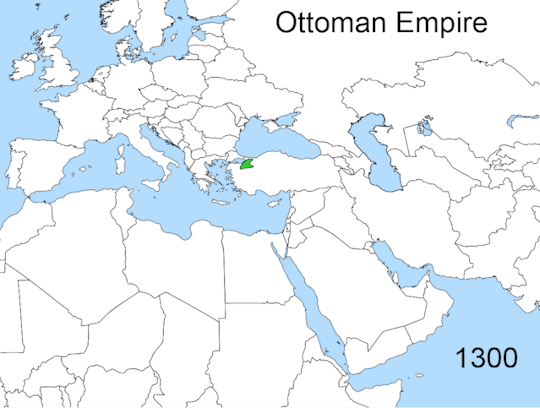#scruton
Photo

Wine is not just an object of pleasure, but an object of knowledge; and the pleasure depends on the knowledge.
Sir Roger Scruton, I Drink Therefore I Am
Si tu te souviens bien, il existe cinq bonnes raisons de boire : L'arrivée d'un hôte, la soif présente et à venir, le bon goût du vin et n'importe quelle autre raison.
#scruton#roger scruton#quote#wine#grape#drink#du vin#drinking#grapes#wine making#vitculture#oenology#french
497 notes
·
View notes
Text
Burke discerned two radically distinct responses to beauty in general, and to natural beauty in particular: one originating in love, the other in fear. When we are attracted by the harmony, order and serenity of nature, so as to feel at home in it and confirmed by it, then we speak of its beauty; when, however, as on some wind-blown mountain crag, we experience the vastness, the power, the threatening majesty of the natural world, and feel our own littleness in the face of it, then we should speak of the sublime. Both these responses are elevating; both lift us out of the ordinary utilitarian thoughts that dominate our practical lives.
Roger Scruton, Beauty: A Very Short Introduction
#quote#Roger Scruton#Scruton#beauty#aesthetics#Edmund Burke#Burke#philosophy#sublime#nature#psychology#perception#power#love#fear#emotions
183 notes
·
View notes
Text
Beauty is vanishing from our world because we live as though it did not matter.
Roger Scruton
63 notes
·
View notes
Text

“The Turkish term millet (which now has the meaning of "nation") derives from Arabic millah, meaning a creed community or sect. The Ottoman Empire included Christians and Muslims of almost every obedience, together with Jews, Druze, and Alawites (the latter two being sects that grew out of Islam but ought now to be regarded as indigenous forms of post-Islamic religion). Each subject of the Ottoman Empire belonged to, or was allocated to, a millet, defined primarily by religious custom and confession. The millets (milletler in Turkish) were represented separately before the Sultan's throne, and rivalry between them was settled by adjudication from the Sublime Porte—in that sense there was an overarching territorial jurisdiction. However, the authority of this jurisdiction depended upon the dominant millet of Sunni Muslims and on the shari’ a as interpreted by the Mufti. When, during the nineteenth century, the Ottoman authorities attempted to modernize the law, as an instrument for administering the entire territory of the Empire, the resulting code—the Majalla, as it is known—was explicitly derived from the shari’ a: the first attempt, indeed, to codify Islamic law. The Majalla was preserved under the British protectorate of Palestine, and incorporated after independence by the State of Israel: a tribute to Islam that is not often remarked upon.
The Ottoman Empire was a territorial jurisdiction only in the sense that the dominant creed community asserted its overarching control over all local administration. In all matters relating to religious custom, marriage, family, and inheritance the millets were sovereign, and they dealt with conflicts by a system of appeals to the office of their respective religious leader—the Greek Catholic Patriarch in Antioch, for example, or the Greek Orthodox Patriarch in Constantinople. The ones who suffered most from the Sunni ascendancy were not the Christian minorities (although the Armenians were to pay a bitter price when the Empire finally began to disintegrate), but the Muslim sects judged to be heretical and therefore deprived of a religious leader and communal identity of their own—the Shi'ites being the principal example.
As the Empire declined, the rights and privileges of the millets were continually set aside by a central power that welcomed sectarian conflict as the best guarantee of its own survival. Increasingly, therefore, sectarian loyalties came to prevail over obedience to the Porte, and when, in the wake of the First World War, obedience was cancelled, the subjects of the Empire found themselves with no other lord than that which religious custom or tribal affiliation had bestowed on them. At the same time the Western powers— France and Britain in particular—were staking out their rival imperial claims in the region and dividing up the Ottoman territory into countries that had little or no identity beyond that required by administrative convenience and geopolitical strategy. Even where regions had achieved a kind of autonomy under Ottoman sovereignty—notably Lebanon and Egypt—the claims of history and local loyalty were largely set aside in the interests of imperial gain.
It is easy to blame the subsequent instability of the Middle East on the ambitions of the Western powers. However, it is important to bear in mind that, in a region of creed communities, none of which enjoyed a territory of its own, there was no alternative to empire. Without some kind of territorial jurisdiction imposed from outside, the communities themselves would have been bereft of all methods, other than war, of resolving the disputes between them. The Sykes-Picot accords, agreed between two adventurous diplomats charged with securing a postwar settlement for the region, therefore divided the Ottoman territories into geographical states, and endeavored to attach to each of them a sovereign who would command the common loyalty of the communities who resided there, and a legal system that would underpin the institutions required by political "progress."
These legal systems, derived as a rule by importing ready-made codes from the West, were intended to further the development of the territories as "nation-states," governed according to constitutional principles familiar from the European rule of law. Although they frequently paid lip service to the shari’ a, these codes harmonized badly with the indigenous legal traditions, and required knowledge and expertise that were not locally available. Hence the temporary imperial administrations under puppet sovereigns (some of whom had no previous territorial connection with the countries over which they nominally ruled) did not make way for genuine political government, still less for democracy in the Western mold, even in those countries— such as Egypt—where there was considerable indigenous support for Constitutionalism, and established interests wedded to the idea of a secular state. For the most part the regimes installed by the European powers crumbled before feudal despotism, hereditary monarchy, or the peculiar combination of gangster terrorism and Leninist one-party rule imposed through the Ba'th party by Hafiz el-Asad in Syria and Saddam Hussein in Iraq. And in place of Western ideas of secular government came the kind of raging ideological politics, influenced equally by Marxism and Islamic millenarianism, that finally gained absolute power with the Islamic Revolution of Khomeini in Iran.
The most telling exception was Lebanon, which had retained a kind of independence since classical times. Thanks to its mountainous hinterlands, Lebanon had been able to protect itself from enemies (including the Sultan), and to survive as a semi-autonomous emirate, offering refuge to the more adventurous tribes of Asia Minor and the Fertile Crescent. And thanks to its Mediterranean harbors, Lebanon had enjoyed a freedom and respect for law that are the natural concomitants of maritime trade. Its Christian (largely Maronite) community (probably a majority at the time when Lebanon became a French protectorate) had evolved a territorial claim, a European sense of secular jurisdiction, and a commitment to freedom of conscience made necessary by its many sects.
Bordered by a despotic Syria, occupied by armed refugees from Palestine, invaded by the Israeli and Syrian armies, and beset by a rebellious and growing Shi'ite underclass and an Iranian-backed Shi'ite militia intent on bringing chaos to the countryside, Lebanon was doomed to destruction. Nevertheless, its model constitution and laws, its "national pact" (which distributed the offices of state according to the confessions), and its democratic procedures under a French-style presidency so distinguished it, during its years of relative peace, from every other Arab state as to bear witness to the real and deep difference between a Christian and a Muslim political culture. Territorial jurisdiction takes natural root in the first, but not in the second, and the one remaining example of a Muslim country in which secular jurisdiction and democratic procedures survive—Turkey itself—is notable for the fact that religion is expressly banished from the law, from the offices of state, and from the public life of the country, and that the edict of banishment must be constantly remade by a vigilant and secularized army.
With hindsight it is difficult to see the destruction of the Ottoman Empire as anything other than a disaster—a disaster whose consequences threaten to match those of the Russian Revolution and the rise of Hitler. So it is described by David Fromkin, for example. The tragic history of the post-World War I settlement, however, is less relevant to today's world than the enduring failure of the Middle Eastern states to acquire territorial legitimacy. In this they contrast starkly with the successor states of the Austrian Empire, where nationalist aspirations had preceded the breakup of the Empire by a century or more, and where loyalties were already shaping themselves in the nineteenth century according to territorial rather than religious or tribal ideals.
(…)
It is true that there has been a concerted attempt, beginning with the Ottoman reforms of the nineteenth century, to introduce ideas of national rather than religious unity into the Middle East. The philosophy of "Arab nationalism" was designed to facilitate modern forms of government, with the territorially defined nation (qawm) replacing the Islamic umma as the focus of loyalty. The Arab nation was invented in order to provide a pre-political order suitable to the emerging sovereign states, and "arabism" (‘uruba) became a nationalist ideology designed to repair the religious and sectarian divisions among the Arabic-speaking peoples. It is perhaps significant that Michel Aflaq, the most influential modern proponent of Arab nationalism and co-founder of the Ba'th Party, was not originally a Muslim but a Paris-educated Syrian of Greek Orthodox extraction, who used nationalist rhetoric in order to uphold the claims of a "Greater Syria" against Lebanon and Israel." When Aflaq, in later life, converted to Islam, it was because he saw this as the logical consequence of his Arabist ideology, rather than the other way around.
In fact the whole idea of Arab nationalism verges on contradiction, being an attempt to shape a local, territorial loyalty from a language that had been spread around the Mediterranean on the wings of a militant religion, and to conscript the religious loyalty that echoes in that most enchanted of languages to a secular cause with which it is profoundly incompatible. The Egyptian case is instructive. The quasi-autonomous Egyptian khedivate under Mehmet Ali and his successors began the Europeanizing process that severed the country from the rest of the Ottoman Empire. British occupation excited local resistance, the most effective and committed of which was that of the Muslim Brotherhood. This was founded by Hassan al-Banna in 1928, initially as a religious charity offering support and comfort to the migrants who were crowding into the cities, but soon developing into a terrorist movement aimed at ridding Egypt of alien powers. Resistance to the foreigner, in other words, came into being as a jihad on behalf of Islam. When Nasser came to power in 1952 by a coup d'état staged by fellow army officers, so ousting the British client King Faruq, he wished to gain legitimacy for a secular government, and therefore preached the Arab nationalist cause. But he found himself in immediate conflict with the real pre-political loyalty of the Muslim majority. The Copts of Egypt, like the Maronites and Melkites of Lebanon, saw the benefits of a secular state and Western systems of law: such is the normal Christian response. Many of the Muslims did not.
Nasser moved quickly to suppress the Muslim Brotherhood, by means almost as brutal as those which President Hafiz el-Asad was later to use in Syria. Having taken a step in this Arab nationalist direction, Nasser found himself compelled by the logic of the case to declare a short-lived "United Arab Republic" of Egypt and Syria. If the Arabs really are a unified people, then they deserve and require a unified state. The immediate collapse of the UAR, however, made it clear that there was little more to Arab political unity than a shared antipathy to Israel. The real unity remains today what it was in the time of Muhammad: the unity of a creed community with a common language sanctified by a holy text. And the centuries of fragmentation into rival sects and tribes have ensured that this unity—the only unity that the people really believe in—is also an unrealizable fiction whose political enactment entails bloodshed, tyranny, and war.
Anwar Sadat, who succeeded Nasser as President of Egypt, recognized that the secular republic that Nasser had tried to create was unsustainable. Although the Muslim Brotherhood remained a proscribed organization, Sadat emphasized his own Islamic credentials and made apparent concessions to the mullahs, while at the same time urging a kind of local Egyptian nationalism—msriaha—the true basis of his political legitimacy. His assassination at the hands of religious terrorists was an especially vivid illustration of the fact that the most potent pre-political ideology to have captured the hearts of modern Egyptians has remained that of the Muslim Brotherhood. And it is to the Muslim Brotherhood that the atrocities of September 11 should ultimately be traced.” - Roger Scruton, ‘The West and the Rest’ (2002) [p. 26 - 35]
#scruton#roger scruton#ottoman#ottoman empire#the west#turkey#egypt#lebanon#syria#saudi arabia#israel
5 notes
·
View notes
Text

«El kitsch, como nos recuerda el caso de Disney, no consiste en un exceso de sentimiento, sino en un déficit del mismo. El mundo del kitsch es en cierta medida un mundo sin corazón, en el que la emoción se desvía de su objetivo adecuado hacia estereotipos almibarados, lo que nos permite rendir un homenaje superficial al amor y al dolor sin tomarnos la molestia de sentirlos.»
Roger Scruton: La belleza. Editorial Elba, pág. 221. Barcelona, 2017
TGO
@bocadosdefilosofia
#roger scruton#scruton#la belleza#kitsch#estética#disney#sentimiento#emoción#amor#dolor#filosofía contemporánea#teo gómez otero
2 notes
·
View notes
Text

A qualunque persona istruita — e in un qualunque momento storico fra il 1750 e il 1930 — fosse stato chiesto di descrivere lo scopo della poesia, della pittura, della scultura o della musica, la risposta sarebbe stata: “La bellezza”. E, se aveste chiesto ragione della risposta, vi avrebbero insegnato che il bello è un valore importante almeno quanto il vero e il bene.
Poi, nel secolo XX, la bellezza ha smesso di essere importante. Il fine dell’arte è diventato con sempre maggior frequenza quello di turbare, di rompere tabù morali. Non è più stata la bellezza a essere glorificata, ma l’originalità, comunque raggiunta e a qualunque costo morale.
Non solo la pittura e la scultura hanno affermato il culto della bruttezza; anche l’architettura è diventata senz’anima e sterile. E non è solo ciò che fisicamente ci circonda a esser diventato brutto: il nostro linguaggio, la nostra musica e le nostre maniere sono diventati sempre più scabri, egocentrici e offensivi, come se la bellezza e il buon gusto non trovassero più un loro posto nelle nostre vite.
Una parola è scritta a chiare lettere su tutte queste brutte cose. Questa parola è: “Io”. Il “mio” guadagno, i “miei” profitti, i “miei” desideri, il “mio piacere”. E l’arte non ha null’altro da dire in risposta a quest’atteggiamento se non: “Bene! Vatteli a prendere!”.
Personalmente, penso che stiamo rischiando di perdere la bellezza. E vi è il pericolo che, con lei, perderemo anche il senso della vita
------------------
-uomini ignorati dai media perché non cavalcano l'onda: quelli da recuperare.
13 notes
·
View notes
Text
In our civilization, religion is the force that has enabled us to bear our losses & so to face them as truly ours. The loss of religion makes real loss difficult to bear.
Roger Scruton
0 notes
Photo


Dylan Scruton by Jake O’Donnell
4K notes
·
View notes
Text

"Art once made a cult of beauty. Now we have a cult of ugliness instead. This has made art into an elaborate joke, one which by now has ceased to be funny."
Sir Roger Scruton
478 notes
·
View notes
Photo

Nobody who understands the experiences of melody, harmony, and rhythm will doubt their value. Not only are they the distillation of centuries of social life: they are also forms of knowledge, providing the competence to reach out of ourselves through music. Through melody, harmony, and rhythm, we enter a world where others exist besides the self, a world that is full of feeling but also ordered, disciplined but free. That is why music is a character-forming force, and the decline of musical taste a decline in morals.
- Sir Roger Scruton, The Aesthetics of Music
#scruton#roger scruton#quote#music#melody#harmony#rhythm#composition#aesthetics#sound#femme#arts#culture#classical music
581 notes
·
View notes
Quote
...human design may adjust nature at the edges, with boundaries, ploughed fields and plantations, but our reaction to nature is directed to forces that are more deeply embedded in the scheme of things and more longer lasting than any human ambition.
Roger Scruton, Beauty: A Very Short Introduction
54 notes
·
View notes
Text

#dark academia#light academia#classical#academia aesthetic#escapism#academia#books and libraries#classic literature#books#architecture#quote#beauty#roger scruton#royal core#cottage core#aesthetic#academic#mood#vibe#tumblr
167 notes
·
View notes
Text
Beauty matters. It is not just a subjective thing but a universal need of human beings. If we ignore this need we find ourselves in a spiritual desert.
Roger Scruton
29 notes
·
View notes
Text
"Faking depends on a measure of complicity between the perpetrator and the victim, who together conspire to believe what they don’t believe and to feel what they are incapable of feeling. There are fake beliefs, fake opinions, fake kinds of expertise. There is also fake emotion, which comes about when people debase the forms and the language in which true feeling can take root, so that they are no longer fully aware of the difference between the true and the false.
Anyone can lie. One need only have the requisite intention — in other words, to say something with the intention to deceive. Faking, by contrast, is an achievement. To fake things you have to take people in, yourself included. In an important sense, therefore, faking is not something that can be intended, even though it comes about through intentional actions. The liar can pretend to be shocked when his lies are exposed, but his pretence is merely a continuation of his lying strategy. The fake really is shocked when he is exposed, since he had created around himself a community of trust, of which he himself was a member."
Roger Scruton (1944-2020) English Conservative philosopher.
37 notes
·
View notes

